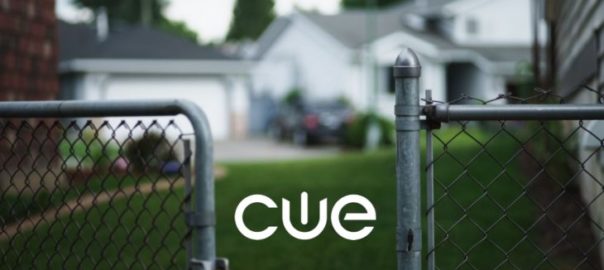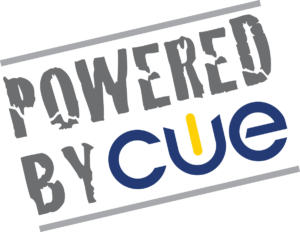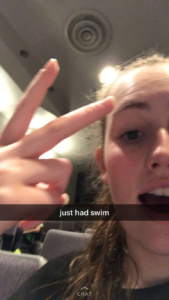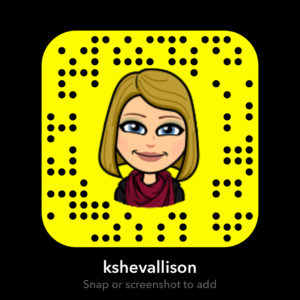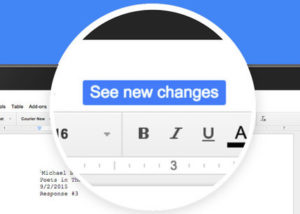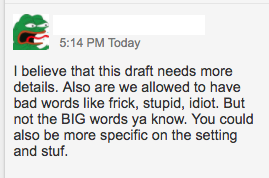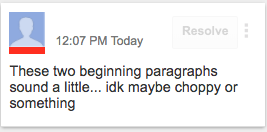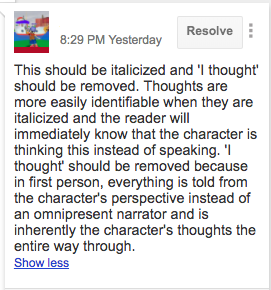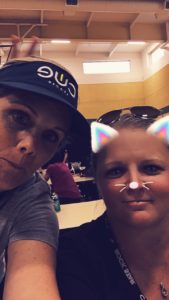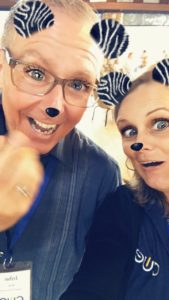This post was originally published at http://blog.cue.org/check-your-backyard/
This week, CUE posted the call for presenters. Presenters. You know those confident educators that are the experts in their field. The ones that are willing to draft a beautiful slide presentation, share resources, anecdotes and examples of how you can improve your understanding of the seamless integration of technology at your site or district. You know. Those people.
Well, why aren’t you applying? Not quite ready?
That was me, not too long ago. I remember my first CUE event: CUE Rockstar, Lake Tahoe. The first time I saw Joe Wood teach a session on Google Maps. He was so confident. He barely spoke, really. Just guided us through the tool. Let us click. Let us explore. Let us play. It was invigorating. Joe created a safe space for me to learn: a safe space to collaborate with the other educators in the room.
I was hooked. Hooked on learning. Hooked on connecting. After that, I knew I needed to step beyond the Twittersphere and actually do some IRL connecting. But how?
My journey began at CapCUE, the local CUE affiliate in the Sacramento area. I answered theircall for presenters. Each Fall, CapCUE hosts their own collaborative learning opportunity: Techfest. I threw my hat in the ring and decided to share a plethora of tools for speaking and listening. About five people showed up to my session, but we had the best conversations!
Since that tiny session, I have only grown as an educator through the connections I have made getting involved in my local affiliate. I eventually joined the board as a director. Better yet, I have made some incredible friendships with like-minded and crazy fun people. CapCUE has become an important part of who I am. The members support me in my professional and personal life. CapCUE has become my extended family. Soon these educators pushed me to present at FallCUE, then Spring. My journey started a few miles from my house.
So, if you’re thinking about sharing all the great ideas you have, all the ways you make a difference in students’ and teachers’ lives, but you’re not quite ready for a large event, don’t forget this advice: some of the best connections you can make are right in your backyard. Seek out your local affiliate. Apply to present at their events. You might even consider joining other affiliate events and reaching out beyond your backyard. Check the CUE blog page for opportunities to connect near you.
Get involved. It might just change your life. It changed mine.
“My first time presenting was at the CapCUE TechFest at Natomas Charter School. It was after lunch and only three people showed up. I had so much fun working with CapCUE and the connections I made led me to present at more and more conferences.” —Corey Coble CapCUE Board Member
“After being excited and going to CUE and wanting to get involved, I reached out to my local affiliate. It offered me a chance to be a part of something larger and get connected to a community. It allowed me to grow as a professional and share that learning with others.”—Tom Covington SGVCUE Board Member
The SVCUE affiliate Board of Directors is comprised of educators who seek quality, fresh, collaborative, and vibrant members who have identified strengths to embody and execute the team’s mission. We work collectively, with students at the heart of what we do. Beyond that, I stay with this affiliate because I remember my roots. I remember where I started. I remember where I was given a chance, and even a second chance. No matter where you go professionally, remember who helped you along the way. That’s SVCUE! —Kristina Mattis SVCUE Board President
“Looking back, it wasn’t unusual at the time to find myself helping my colleagues develop their tech skills, but I will never forget that first time I stepped out and presented for total strangers at my first CapCUE Techfest. The experience opened my eyes to possibilities and network connections I never knew existed. Since that first presentation, I have traveled the country dropping nuggets of knowledge that I have learned along the way, I have learned to blog, to podcast and to curate the most amazing support network imaginable within my #CapCuePLN.”—John Eick CapCUE Board President
